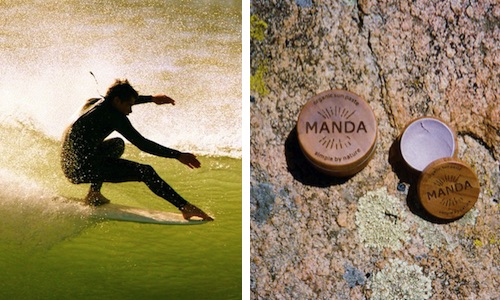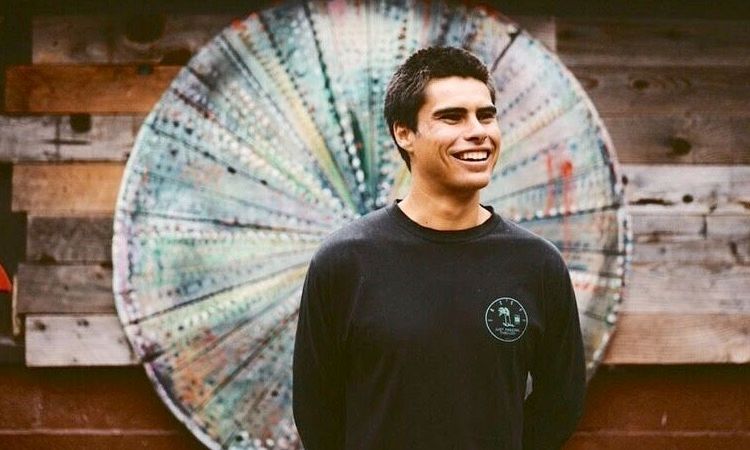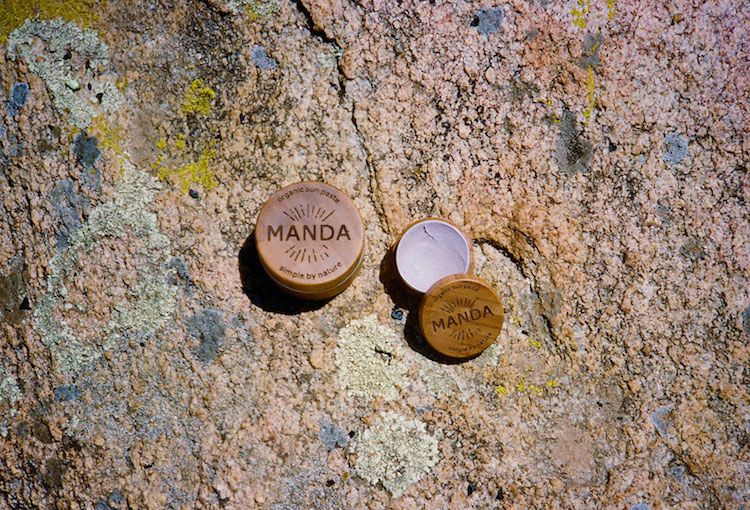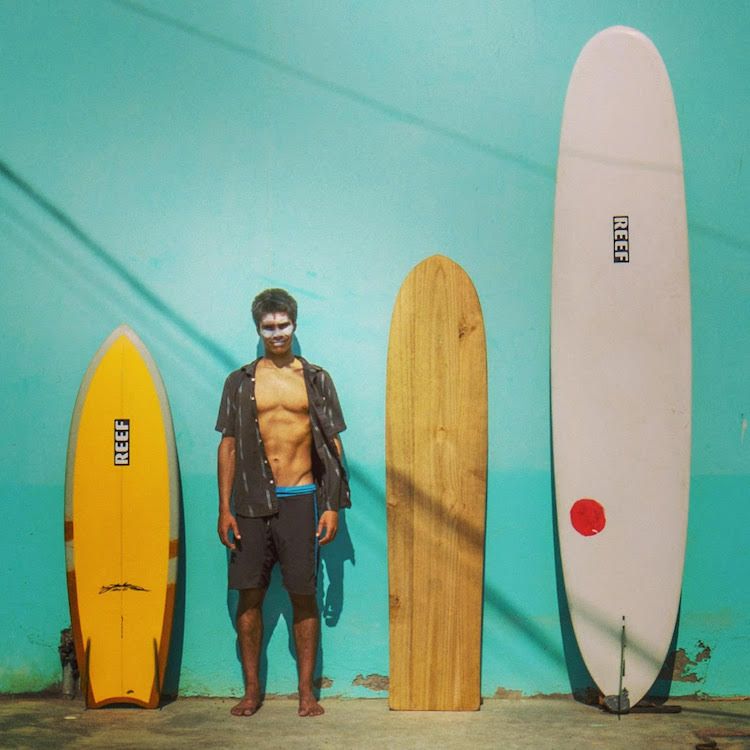
Exclusive Interview: Pro Surfer Cyrus Sutton Develops Sunblock Safe for People and the Planet

Ever the multi-tasker, Sutton took the time to answer some of EcoWatch’s questions about his new sunscreen via email while sitting in his Sprinter van in Death Valley, California. The 33-year-old native Californian, who splits time living on the road and a 3-acre homestead in Washougal, Washington, is currently putting the finishing touches on his first feature documentary Island Earth from his solar-powered editing studio.

EcoWatch: Have you found that more people are looking for alternatives to chemical-based sunblock? If so, why do you think that is?
Sutton: I think our eyes are being opened to vast amounts of chemicals in the products that surround us. As consumers we are starting to second guess the marketing hype that we all grew up with. I think we’re part of a backlash movement which is showing us that you can make products that are as or more effective as conventional ones without all of the chemicals. In terms of skin care and Manda, our skin is the largest organ in the body, it is responsible for respiration and elimination. Why would anybody want to put something on their skin that they couldn’t eat?
EcoWatch: What are some things people are saying about Manda? How does it hold up after a long day in the sun?
Sutton: The response has been overwhelming. I didn’t think people expected that something so simple could be so effective. Our Sun Paste is a targeted sun solution, which means you only apply it to your most sensitive areas. For most people that’s their nose, lips, ears and cheeks. People have been sending us photos where they’ve applied Manda to a specific area like a scar and then applied a 30 SPF spray to the surrounding area. The area with our product at end of the day was not touched by the sun while the rest of their body was sunburned.
EcoWatch: Do you still make sunblock in your kitchen?
Sutton: I don’t make sunblock in my kitchen anymore. My home brew could never match the recipe we’ve perfected.
EcoWatch: What are the other benefits of thanaka? Why isn’t it currently used with any sun care products in the U.S.?
Sutton: Thanaka is used all over Southeast Asia as a holistic curative both topically and internally. I’m not sure why it is not used here. In my travels I’ve encountered all sorts of local medicines that have yet to be adopted by the West.
EcoWatch: Do you think that surfing or filmmaking has increased your appreciation of the ocean and the environment?
Sutton: Surfing is something that teaches you a rhythm of the natural world. To be good requires patience and respect. Filmmaking has allowed me to have in-depth conversations with recognized doctors, scientists and policy makers. What I’ve learned from these discussions is that the well-being of people and the planet is low on the list of priorities of companies who supply the majority of products we consume. As a surfer and a filmmaker, I think that it is my duty to create something that not only respects people and the environment but also hopefully shifts the way business is done.
[instagram https://instagram.com/p/BCrJnfiv8gX
EcoWatch: What’s the one product/gadget you can’t live without?
Sutton: My stove and pots. Otherwise I’d be eating out of cans. You can’t live on the road very long eating out of cans.
EcoWatch: Who’s your eco-hero and why?
Sutton: My eco heroes are Bill Mollison and David Holmgren, permaculture founders. Permaculture is a design science that combines modern technology with indigenous wisdoms to create not just sustainable but regenerative blueprints for human societies. It’s been proven in all climates and just needs more people to participate. It was born as a reaction to the protest movements of 60’s and 70’s. Instead of protesting what we don’t want, they researched the cultures and societies over history that were truly sustainable and applied them to today.
I love this quote by Mollison: “The greatest change we need to make is from consumption to production, even if on a small scale, in our own gardens. If only 10 percent of us do this, there is enough for everyone. Hence the futility of revolutionaries who have no gardens, who depend on the very system they attack, and who produce words and bullets, not food and shelter.”
YOU MIGHT ALSO LIKE
5 Powerful Skin Care Products Found Right in Your Kitchen
Ocean ‘Artivist’ Creates Breathtaking Coral Reef Sculptures
Teen Girls See Big Drop in Chemical Exposure With Switch in Cosmetics

 233k
233k  41k
41k  Subscribe
Subscribe 

